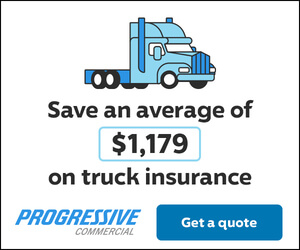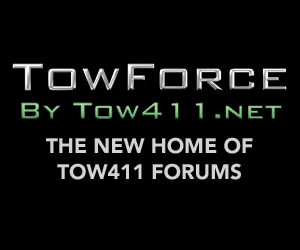By Jeffrey Godwin
Have you ever found a product that you thought you could get from anywhere and it would be the same? That’s called a commodity. To the untrained eye, anything from raisin bran to towing can be considered a commodity but looking more closely reveals differences in each offering. Granted, all raisin bran should be made up of bran flakes and raisins. But, the real question is “do you want two full scoops of fresh, plump raisins?” If so, then there is a brand on the market that has spent millions of dollars to let you know they offer two scoops. With towing services, you hope your potential customers know what makes you better for them. Maybe you are closer, faster, cheaper (I hope this is not your primary selling point but it is often true of towing and raisin bran), have newer equipment, trained operators, special contract relationships, or some other factor that differentiates you from your competition. In both scenarios, there are commonalities as well. Many outside of our industry look at towing as purely a commodity. The same is true for many of those in our industry when it comes to software offerings. In this article, I want to highlight the basics of what is available in the industry.
Call Taking
All towing software packages are likely to have a call entry and management screen organized in some user friendly manner to track the basics about a call. Standard information would be to track the service being performed, information about the vehicle being serviced, location, destination where applicable, and customer information so you know who is paying. As you look at the various systems, it is important to determine if the many things you do in your business are available in the program. For instance, you may need a special field for a number other than your tow ticket number or maybe you have customers like police departments with specific record keeping requirements. It is important that you are comfortable that the things you do every day can be handled by a prospective software application.
Dispatch
If you use software for live dispatch (and you should), the dispatch screen is very important. If you do not dispatch yourself, be sure your dispatcher looks at the various software options. Though dispatching may seem simple, there are many ways to go about it and the one that will be best for you is the one that is best for your dispatcher. Most of the towing dispatch systems also have some sort of mapping interface to allow the dispatcher to determine distance on tows or even the route between two points. Some even allow the user to bring up a map that shows where the job is located, where it is going or both with a breadcrumb-style path demonstrating a possible route, and offer mileage between the two points. Dispatch is the nerve center of any successful towing business and a good dispatcher with good software can make a significant difference in your top and bottom lines.
Customers
The system should track information about your customers. This can be anything from a simple customer list to an elaborate setup that allows you to provide specialized notes to dispatchers or towing operators during calls. Many systems allow you to set defaults for customers so information does not have to be typed in each time a call is taken. Whether it is the vehicle color defaulting to brown on UPS calls or a destination defaulting to your impound yard for police calls, there are many ways the various systems address default values. A good customer area in the system will save you time and money as you provide better customer service.
Trucks
The trucks area of a system should track the assets so they can be assigned to calls. This allows you to report on what value they are adding to your business. Truck tracking can be as simple as a truck number or it may add status information or driver assignment. Truck data can also include a way to track your maintenance activity though that is not necessarily a function of towing software.
Pricing
Systems for the towing industry vary widely in the area of pricing. For some, pricing is simply a grid where any values can be input and then saved. Others offer consistency to customers by setting pricing in customer profiles. There can be pricing plans where a customer is assigned to a specific set of rates or even specific rates for every customer. Companies have many variations of pricing depending on who the customer is and when or where a service is completed. Making sure the system you are purchasing can manage these things for you will assist you in training your staff and make sure you are remaining in compliance when necessary.
Payments, Paperwork, and Accounting
Towing software can often be your accounts receivable billing system or it can interface to a real accounting package such as QuickBooks. In some cases, these packages can do both. Getting to the point of billing and accounting is all about accuracy in the system. A good way to manage this is to receive in all of the paperwork from your drivers and then to verify that their paperwork and received payments match what is shown in the system. Once any discrepancies are addressed, these can then be transferred to an accounting package or you can handle all of your billing and payment application in the towing system if that feature is offered. Either way, there is information that is validated to bill to customers and to reconcile cash payments received. Tracking the paperwork from your drivers is also a good way to further manage your tow tickets.
Inventory
If you store vehicles and need to track inventory, towing software packages are made to assist in this process. Whether you need to know what is on a particular lot or you need to find a specific car, these systems are invaluable. You can assign vehicles to lots on intake and begin charging fees based on various agency and other customer profiles. The systems should manage re-tows as well as track all access granted to impounded vehicles. Systems should allow call takers to locate vehicles in storage, quote prices when consumers call about release options, and track releases including who the vehicle was released to and when.
Lien and Auction
There are as many ways to handle lien processing as there are software solutions, if not more. Some systems leave it to you to do this work manually or simply generate a letter for you. Others generate every letter that is needed in the process, tell you when steps are needed, and then do the bulk of the work for you so all you have to do is fold, stuff, and mail. Trying to make sure you train your staff correctly for this activity and keep them current on the specific requirements of your state, county, and city is a never ending task that can be managed by a software application. Lien systems in the towing industry also often tie to an auction module that allows you to build auctions and auction lists as well as to manage bidders, the sale of vehicles, and even the generation of paperwork after the sale.
Reports
Reports are the lifeblood of any good system and should include standard things such as driver and truck productivity to determine who is doing the most work for you as well as customer reports to determine when a customer’s business picks up or drops off. Reports tell you where your call volume is coming from and what services are being purchased. Reports can allow you to view commissions, taxes, inventories, cancelled calls, and more. Reports also encompass specialized forms such as printed receipts, police department required report formats, and more. Be sure the company where you buy software can provide you with customized reports at a reasonable price. Also keep in mind that some systems will allow you to track your work live and to determine where you are in your business at any given point in the day. A good graphical report can also help you make timely decisions and help you to improve your bottom line.
Interfaces
There are a variety of interfaces in the towing software arena. For regular customers, you may have a web interface that allows the customer to enter their own tow and service requests or to check the status of an existing request. For a motor club customer, you may have the ability to accept calls and bill electronically. For police agencies, you may have a tool that allows the agency to look at their inventory online through a simple login. There are tools that can even allow police agencies to manage multiple service provider relationships, dispatch directly to your dispatch screen, or add and remove holds. All in all, the ability to receive calls electronically or to have police department connectivity will help to save you time and further strengthen the relationships you have with your customers.
Multiple Operating Entities
Whether you operate two parts of the same business, have multiple locations with different financials, or even have different operating names and locations, be sure the system you select allows you to merge these entities when needed and to separate them when required as well. Whether it is the ability to dispatch all of your entities together at night or the ability to run separate sales reports for varying business segments, your company structure needs to be supported by the system you select. There is no value in purchasing a system that only handles part of your business.
Other Features
There are many other features that are typically common among software providers in our industry and you should look for these when making a decision. The ability to decode VINs to fill in make and model information or to alert you when the VIN is incorrect is important. Systems should allow you to store images in order to track condition of vehicles before towing or other service as well as for parking violation documentation. Most quality systems also allow you to customize your screens. Whether one dispatcher likes something on the left and another on the right no longer matters.
Price of Systems
I could say a lot about the price of systems but the simplest way to deal with this issue is two parts. One, you get what you pay for is often true so don’t go cheap unless you are sure it is everything you need for your business. You wouldn’t buy a 20 year old, worn out light duty truck would you? Two, evaluate the value. Are you getting software that will grow and continue to evolve with your business? Is support included? Is it a monthly fee or a one-time expense? If you are buying software, be sure it is everything you need for a long time to come and that there is a reason for the provider to always support you. If you plan to grow your business or want to keep up with industry or legal changes, go with a company that makes on-going service a part of the offering.
Selecting A System
Whether you are on a system now, or are in the market for one, you should take the time to see how your selections measure up and then select the best solution for your company.






